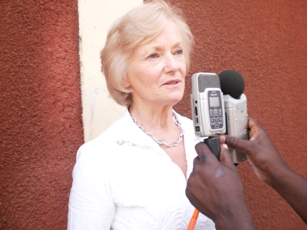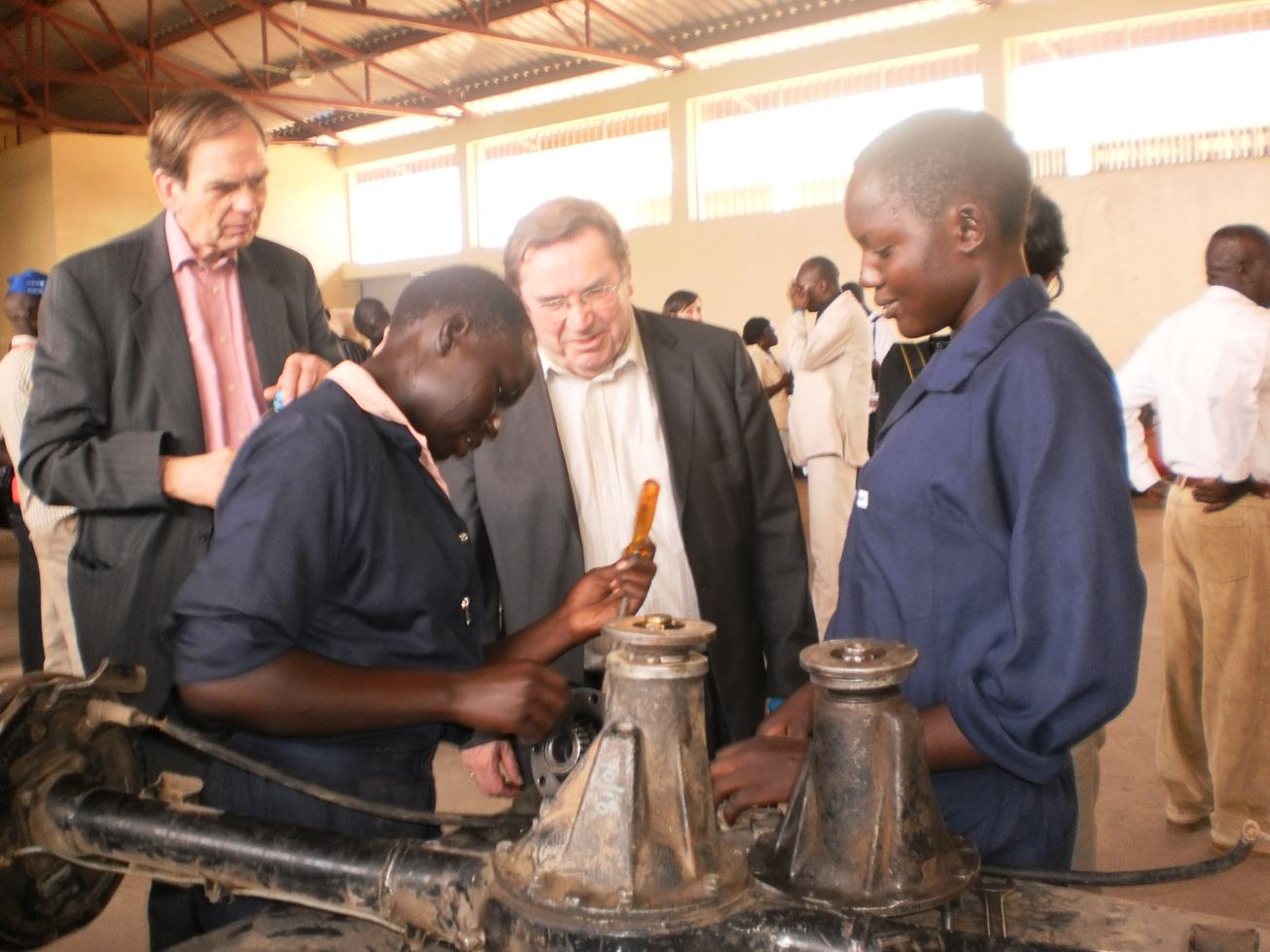South Sudan: Glimmer of hope as UK lawmakers visit once ‘war ravaged’ technical institute
By Julius N. Uma
February 21, 2011 (JUBA) – A UK delegation of law makers, headed by Glenys Kinnock visited Juba Technical High School on Monday.

Accompanied by David Chidgey (Liberal Democrat), John Montagu (Crossbench) and John Mann (Labour), the UK legislators were in Juba, the South Sudan capital to visit the once war-ravaged institution on invitation from Plan International http://plan-international.org.
Plan International is a non-governmental organisation which has been working for the welfare and rights of children in Sudan since 1977.
Founded in 1957 and transformed into an intermediary in 1969, Juba Technical School was later merged with Lainya and Torit technical schools almost two decades later.
“We came a long way as you can see and the challenges are enormous. But with continuous support from our partners and government, we shall soon make the dream a reality,” Samuel Amuzai, one of the teachers says.
With a student of population of just 41 in 2005, the numbers have now risen to over 360 students, including 45 girls.
“We remain optimistic that with time, the institution will be able to enrol equal numbers of boys and girls given the favourable policy the government has towards girls’ education,” the head teacher told UK lawmakers in his office.
The government-owned institution, located in a suburb of Juba currently has 19 full-time teachers and several part-time instructors. It offers a variety of technical and academic disciplines.
Subjects such as carpentry and joinery, building and auto-mechanics are taught as well as English, Mathematics, Religious Education and Arabic.
Raymond Mwaka, a carpentry and joinery instructor told Sudan Tribune that although the technical school has made tremendous progress over the past few years, it still faces challenges.
He observed, “We still lack the basic tools and equipments needed for teaching these technical subjects. Most of them are in grades and it requires the presence of a technical person to know when buying them. Other issues like inadequate payments for teachers also need to be amicably addressed.”
Mwaka, who earns approximately SDG5 (US$1.5) for every period he teaches, lauded Plan International for what he described as its timely intervention.

Since 2007, Plan International, through its South Sudan chapter has embarked on peace-building processes, under the program of reconstruction and reintegration of South Sudanese through technical and vocational education.
Charles Lasuba Amin, Plan South Sudan’s acting country director said this program seeks to benefit the youth who missed the opportunity to go to school during the country’s over two-decade civil war.
“The program basically imparts practical skills to these students, thus enabling them to explore other opportunities or create jobs for themselves,” Amin said.
(ST)
